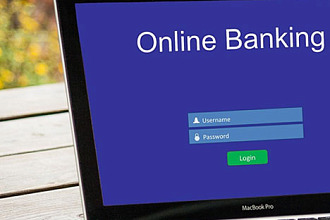While waiting in line at my bank, I accidently dropped a credit card on the table we were slowly circling. The card rested there for a few minutes before I realized it was missing and retrieved it. But that's all the time it took for someone to replicate my card numbers and damage my credit. The next 14 months were run by the credit card that went astray.
Have you experienced anything similar? Your credit history could be ruined by someone hacking into your computer or opening credit accounts in your name. The police might knock on your door, search warrant in hand, because your name, address and phone number have been connected to a Web site containing child pornography.
Are identity thieves actually invisible stalkers using endless scams to grab families' assets? The Internet does have countless stories claiming identity theft is an epidemic and even attorneys are victims. This might be overstated, but realize, if you do business with a bank, frequent an ATM and/or enjoy any type of an electronic device, identity theft is only a matter of time. Who is to blame for this epidemic? The companies who don't take sufficient precautions with their customers' personal information, the creditors who approve credit card and loan applications without sufficiently verifying identity and the hackers who systematically breach banks' firewalls to access their customers' data.
Money Magazine claims, "It's time for all of us to concede that our data ultimately cannot be
defended—which is why it's only a matter of time before your identity is compromised in some way, big or small."1
What can a person do to protect themself and their family? Here are a few suggestions.
1. Stay safe, stay Informed
Thieves rely on your lack of familiarity with your indebtedness. So make sure you have personal knowledge of each and every credit transaction. That's reason enough to stay acquainted with all billings, paying special attention to their billing cycles.
The Kiplinger magazine has an online 10-question quiz you can take to see if your identity is now at risk. To find the quiz go to Kiplinger.com/magazine/links/. This Web page also explains how to stay safe while traveling and the various tricks ID thieves use.
2. Order your credit report at least once a year
Be sure to get your credit report from three different bureaus, but not all at once. Compare the reports with each other and your records, weed out the folk whose names are similar to yours but who
have bad credit and over time you could raise your credit score. To create your own free credit monitoring service, go to www.annualcreditreport.com/.
3. Use ONE credit card for all Internet purchases
With only one monthly "Internet credit card statement" you can easily spot unauthorized transactions. By keeping track of your spending habits you find out your spending priorities. My father used to say, "Don't tell me what you treasure, just show me your budget and I'll tell you what you treasure."
4. When you dispute a charge
Write a letter to your credit card company. State the reasons why you dispute the debt and include any supporting documentation, like the records that show you were not at that location on that date.
Immediately close any accounts that might have been tampered with or opened without your knowledge. Acting quickly is vital. Contact the correct agencies to fix all your inaccurate information and to report the identity theft. Fill out the Identity Theft Affidavit (FTC) form you'll find at www.ftc.gov.
File a police report with your local police department and if the identity theft took place within another area, file a report in that area. This documentation will support your claims to credit bureaus, creditors and debt collectors or other related companies.
Maintain a document list of the police report, Identity Theft Affidavit, statements showing the fraudulent charges, records of accounts opened without your consent and copies of all the letters sent to credit bureaus and creditors.
5. Once a victim, always at risk
BUT by taking these simple precautions you can go a long way to shield your family from this crime.
a. Place passwords on bank, credit card & phone accounts.
b. Don't carry your Social Security Number card.
c. Guard your mail from theft.
d. Don't give out personal information over the Internet.
e. Keep safe the information you have online by using secure connections and virus protection programs.
f. Use a firewall program especially if you have high-speed Internet which keeps your computer connected 24 hours a day and be sure to secure your browser.
g. Consider unplugging your Internet when it is not in use.
h. Don't download files from people you don't know.
i. Take advantage of "Fraud Fighter" security features your financial institution offers. Choose the ones that work best for you. These can be particularly important if you or someone you love suffers from dementia or other disabilities.2
j. "Be aware that thieves use obituaries to set up several of their scams. Consider "not including in the obituary the deceased's specific date of birth or their date of death. These dates facilitate thieves in obtaining a copy of the death certificate, which often includes their Social Security
number. Also consider omitting the person's hometown and state. This information assists thieves in obtaining vital records from the county clerk's office".
Use this issue's information to protect your family "the prudent see danger and take refuge, but the simple keep going and pay the penalty." Proverbs 27:12 Also remember the promise that's just as alive today as it was when Malachi first proclaimed, " 'Bring the whole tithe into the storehouse, that there may be food in my house. Test me in this,' " says the LORD Almighty, " 'and see if I will not throw open the floodgates of heaven and pour out so much blessing that there will not be room enough to store it,' " Malachi 3:10 NIV.

























